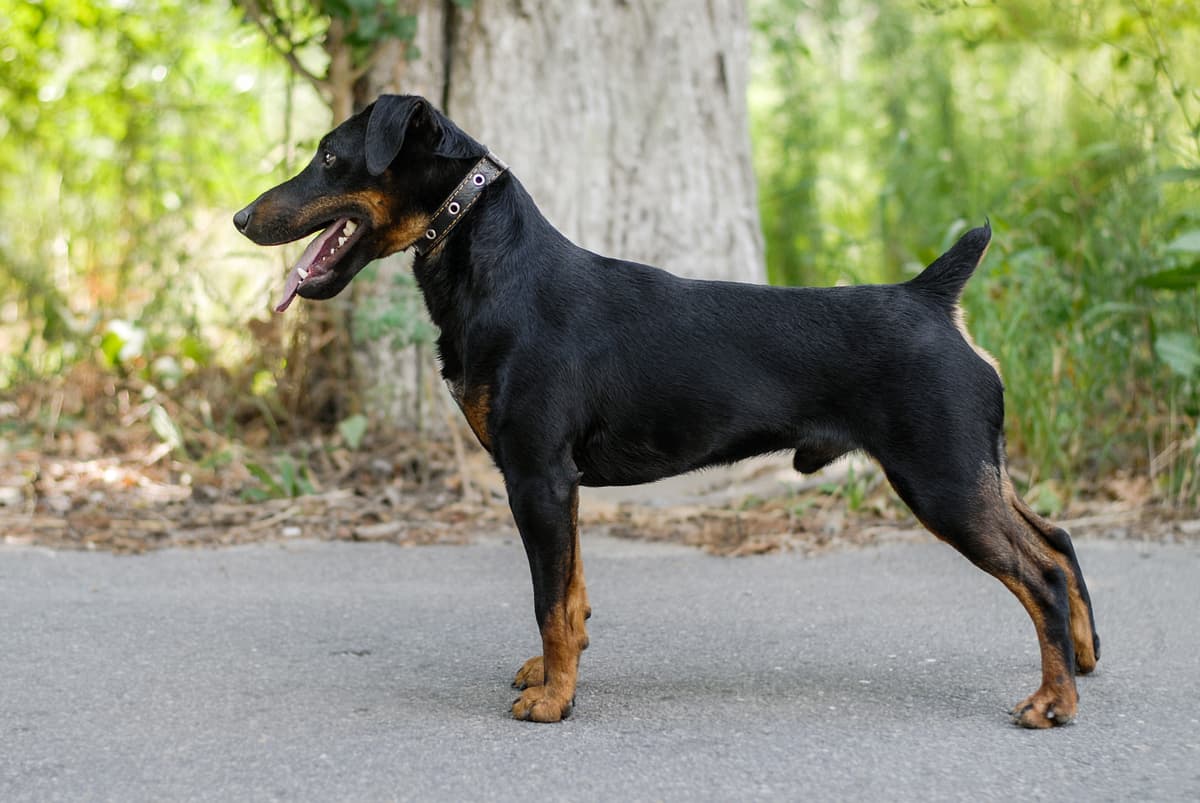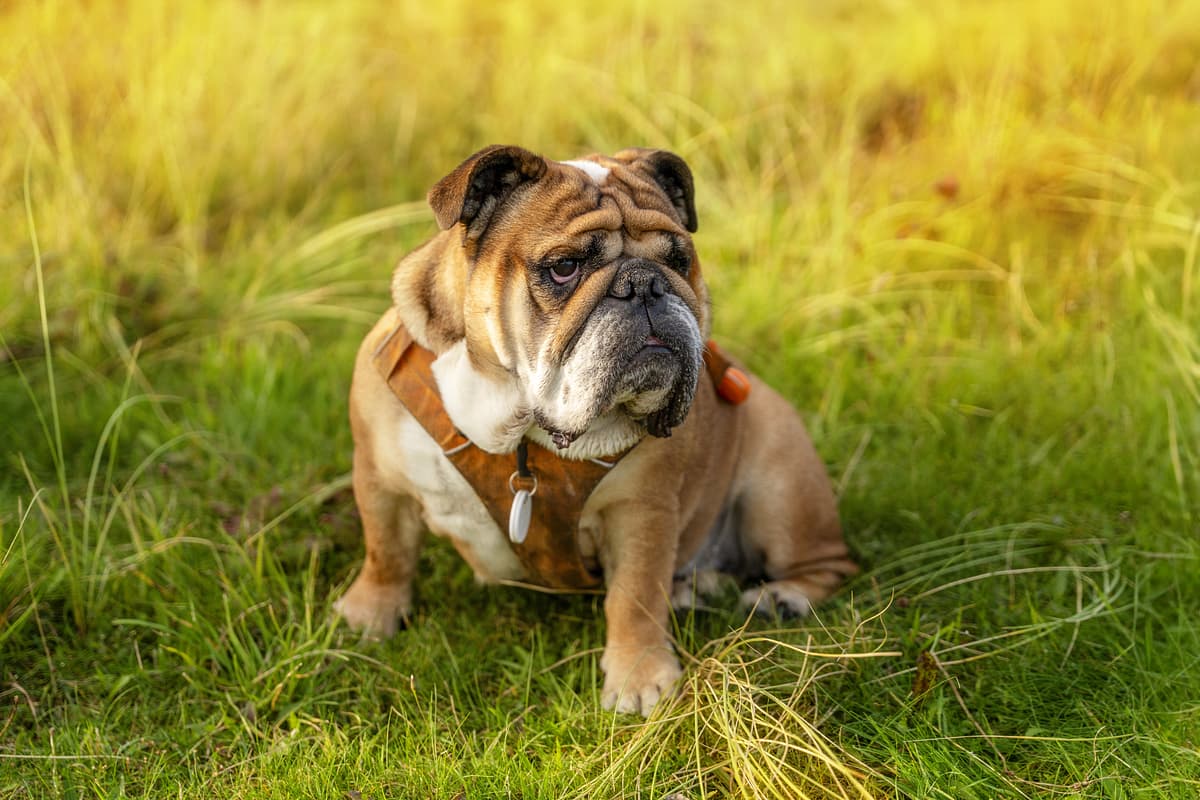German Hunting Terrier vs English Bulldog
Discover the differences between German Hunting Terrier and English Bulldog to make the best choice for your situation.
Try different breeds

German Hunting Terrier
Energetic, courageous, and determined, this compact terrier thrives on adventure and excels as an enthusiastic hunting partner. Known for unwavering loyalty and a spirited, confident personality.

English Bulldog
Stocky, courageous, and affectionate, this breed charms with its wrinkled face and calm nature. Loyal and gentle, it thrives as a loving family companion.
Quick comparison
Small
9–10 kg
Dense, harsh
10–12 years
7.5–8.5 kg
High energy
Medium
23–25 kg
Short, smooth
8–10 years
18–23 kg
Low activity needs
Personality & behavior
Compare the personality traits and behavioral characteristics of both breeds.
German Hunting Terrier
Reserved with strangers, loyal to family
Quick learner, responds well to training
Very active, needs regular vigorous exercise
Enjoys games and interactive activities
Adapts moderately to new environments
English Bulldog
Affectionate and gentle with family and children
Learns basic commands with some patience
Prefers lounging over vigorous physical activity
Enjoys play but tires fairly quickly
Adjusts well to most living environments
Care needs
Exercise, grooming, and daily care requirements
German Hunting Terrier
Eye disorders, patellar luxation
English Bulldog
Brachycephalic syndrome, skin fold infections
Suitability
How well each breed fits different living situations and families
German Hunting Terrier
Challenging for beginners
Needs experienced, consistent training and handling to thrive
Not recommended
High energy and barking may disturb neighbors in small spaces
Excellent match
Thrives with vigorous activity and daily challenges
Use caution
High prey drive and intensity can overwhelm small children
Needs careful supervision
May show aggression toward other pets without early socialization
Poor fit
Suffers from boredom and destructive behavior when left alone too long
English Bulldog
Good option
Easygoing, low-maintenance nature suits owners with limited dog experience
Excellent fit
Moderate exercise needs and calm demeanor work well in small living spaces
Not ideal
Low stamina and breathing issues make them unsuited for high-activity lifestyles
Very suitable
Gentle, patient, and tolerant with young children when properly socialized
Usually compatible
Generally sociable but may need guidance with other pets, especially dogs
Not recommended
They struggle with long periods alone and are prone to separation anxiety
Breed strengths
What each breed excels at and their best qualities
German Hunting Terrier
- Highly skilled in scent tracking
- Strong prey drive for hunting tasks
- Loyal and protective with family
- Agile and energetic for outdoor activities
- Adaptable to various environments
English Bulldog
- Affectionate with family members
- Generally good with children
- Low exercise requirements
- Minimal grooming needs
- Adaptable to apartment living
Challenges & considerations
Potential challenges and considerations for each breed
German Hunting Terrier
- Needs extensive daily physical exercise
- Can be aggressive toward other animals
- Prone to digging and escape attempts
- Requires consistent, firm training approach
- May become vocal without enough stimulation
English Bulldog
- Prone to respiratory problems
- High risk of overheating
- Susceptible to skin infections
- Can be stubborn during training
- Tends to drool frequently
Ready to choose your perfect breed?
Learn more about each breed or compare other breeds to find the perfect match for your lifestyle.
Discover more helpful tools
Make use of our other free tools to get the most out of your pet experience
